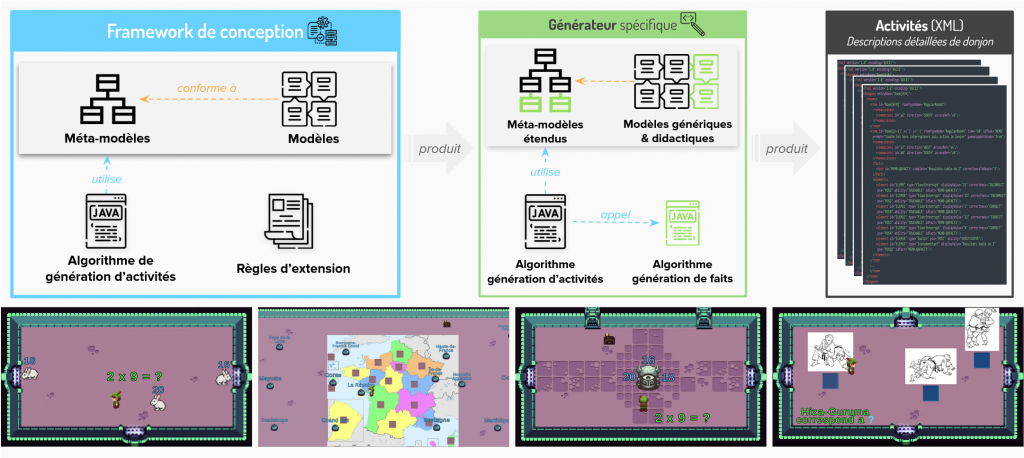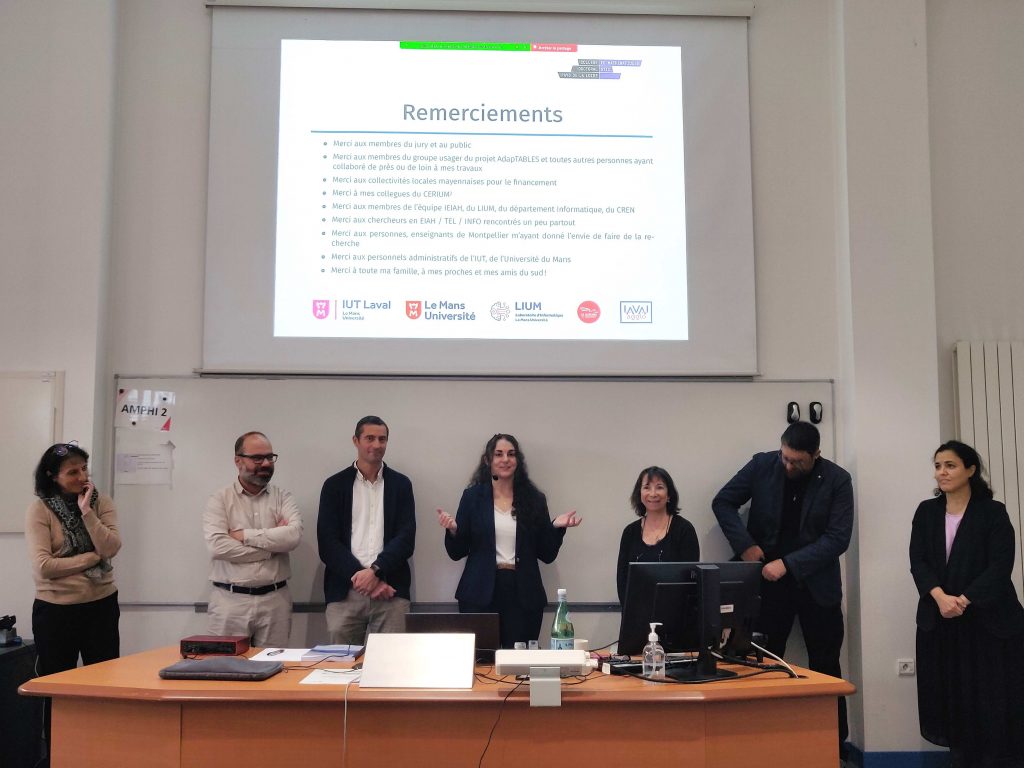PhD defence, Bérénice Lemoine
Date: 27/09/2024
Time: 9h00
Location: IUT de Laval, Anphi 2
Zoom link for watching: https://univ-lemans-fr.zoom.us/j/96201589140?pwd=UnwTCAveSpXQ98U4o7VEh4H7RB88IP.1
Titre : Generation of Adapted Training Game Activities: a Model-Driven Engineering Design and Implementation Framework
Jury members:
- Sophie DUPUY-CHESSA, Professeure, Université Grenoble-Alpes (Rapporteure)
- Karim SEHABA, Maitre de conférences et HDR, Université Lumière Lyon 2 (Rapporteur)
- Amel YESSAD, Maitresse de conférences, Sorbonne Université (Examinatrice)
- Marianne HUCHARD, Professeure, Université de Montpellier (Examinatrice)
- Sébastien GEORGE, Professeur, Le Mans Université (Directeur)
- Pierre LAFORCADE, Maitre de conférences, Le Mans Université (Encadrant)

Abstract:
Procedural generation is a method widely used in video games to deliver varied content tailored to players. However, this method is rarely used in the field of Technology Enhanced Learning (TEL). In this PhD thesis, our focus is on the generation of game activities for declarative knowledge training (i.e., factual information such as laws and multiplication tables). In this context, it is necessary to provide learners with varied and adapted activities to avoid task drop-out caused by boredom. The scope of this thesis covers three angles of adaptation: the teacher’s perspective on training, learner-players progression and players preferences.
This PhD work falls within the field of engineering research of TEL systems. The aim is to characterise the generation of activities and to propose a “generic” approach, i.e., independent of any specific didactic domain. Thus, the aim is to be able to reuse generation elements for different domains. This thesis is based on the AdapTABLES research project, which provides an initial ground of study and experimentation. The aim of this project is to design and develop a multiplication table training game. The research contribution (i.e., study and design methods) was developed in this context, but was also generalised and evaluated in other contexts.
First, we identified a game genre compatible with declarative knowledge training: the Roguelite. In this game genre, the activities or game levels are procedurally generated and incorporate a high degree of variability. Repetition is encouraged by a “permanent death” mechanism. Then, we: 1) characterised and specified the generation by analysing the different adaptation needs (i.e., teacher, learner-player) and 2) proposed a framework (i.e., conceptual framework and software infrastructure) based on the principles of Model-Driven Engineering to design and implement generators for declarative knowledge training in the context of Roguelite oriented games. The generators designed are independent software components producing levels (i.e., dungeons) in XML format that can be interpreted by an educational game.
Three generators have been designed using the framework: one for multiplication training, a second for history and geography facts (i.e., required for the Diplôme National du Brevet des Collèges, a French exam taken in 9th grade) training, and a third for judo facts training. The multiplication tables generator is currently being used in an educational game designed as part of the AdapTABLES project. The framework and its components have been validated using system tests and model checking, as well as experimentation with an engineer to assess the usability of the framework. Moreover, the game developed for the AdapTABLES project and the associated generator were used several times in ecological conditions.


 Français
Français
